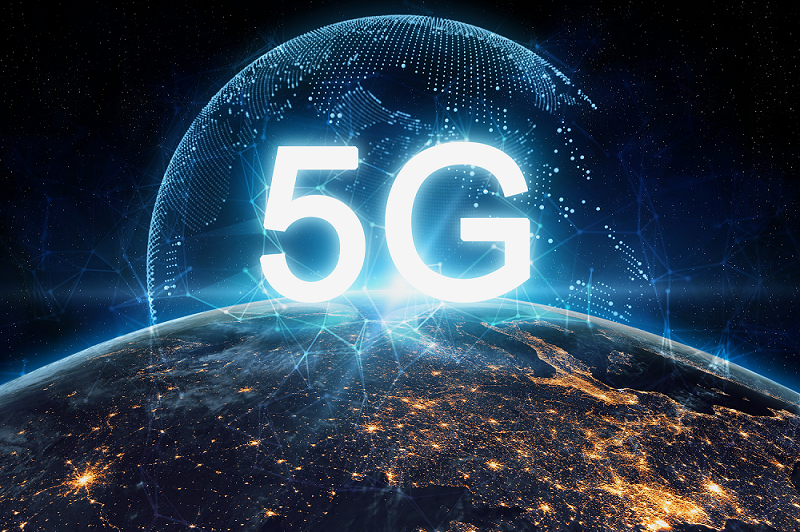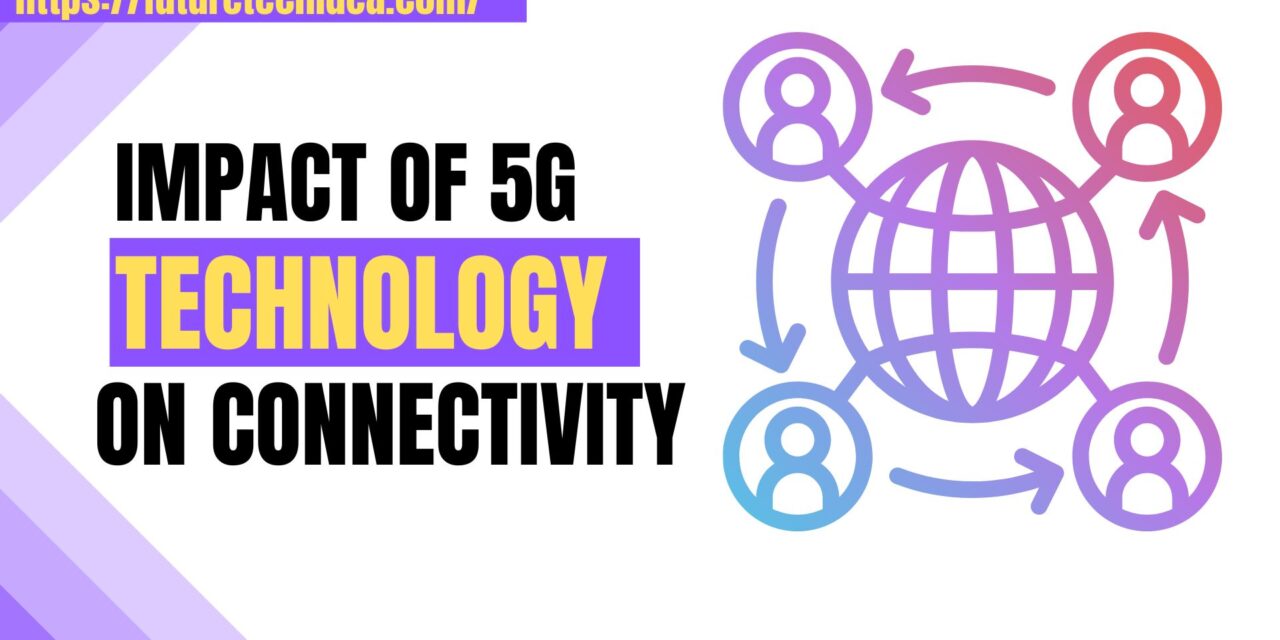The world is on the brink of a connectivity revolution, and 5G technology is at the forefront of this transformation. As the fifth generation of wireless technology, 5G promises to deliver faster speeds, lower latency, and more reliable connections than ever before. But what does this mean for businesses, consumers, and the future of technology? In this blog post, we’ll explore the profound Impact of 5G Technology on Connectivity, its applications across industries, and how it’s shaping the digital landscape.
What is 5G Technology?
5G stands for the fifth generation of mobile networks, succeeding 4G LTE. It’s designed to provide faster data speeds, ultra-low latency, and the ability to connect more devices simultaneously. Unlike its predecessors, 5G isn’t just an incremental upgrade—it’s a game-changer that will enable new technologies and applications.for more information visit here
Key Features of 5G:
- Blazing-Fast Speeds: 5G can deliver download speeds of up to 10 Gbps, making it 100 times faster than 4G.
- Ultra-Low Latency: With latency as low as 1 millisecond, 5G enables real-time communication for applications like autonomous vehicles and remote surgery.
- Massive Device Connectivity: 5G can support up to 1 million devices per square kilometer, making it ideal for the Internet of Things (IoT).
- Enhanced Reliability: 5G networks are more stable and less prone to interruptions, ensuring seamless connectivity.
How 5G is Revolutionizing Connectivit
1. Faster Internet Speeds for Consumers
One of the most noticeable impacts of 5G is the dramatic increase in internet speeds. Streaming high-definition videos, downloading large files, and online gaming will become smoother and more efficient. For instance, downloading a full-length HD movie that took minutes on 4G will now take just seconds with 5G.
2. Transforming Industries with IoT
The Internet of Things (IoT) is set to explode with the advent of 5G. From smart homes to industrial automation, 5G’s ability to connect millions of devices simultaneously will drive innovation. For example:
- Smart Cities: 5G will enable real-time monitoring of traffic, energy usage, and public safety.
- Healthcare: Wearable devices and remote patient monitoring will become more effective with 5G’s low latency.
- Agriculture: Farmers can use IoT sensors to monitor soil conditions and crop health in real time.
3. Enabling Autonomous Vehicles
Self-driving cars rely on instant communication with other vehicles, infrastructure, and cloud-based systems. 5G’s ultra-low latency and high reliability make it the perfect backbone for autonomous vehicle technology, ensuring safer and more efficient transportation.
4. Revolutionizing Healthcare
5G is poised to transform healthcare by enabling telemedicine, remote surgeries, and real-time data sharing. Doctors can perform surgeries remotely using robotic arms, thanks to 5G’s near-instantaneous response times.
5. Enhancing Augmented Reality (AR) and Virtual Reality (VR)
AR and VR applications require high bandwidth and low latency to deliver immersive experiences. 5G will unlock the full potential of these technologies, enabling applications in gaming, education, and training.
The Role of 5G in Bridging the Digital Divide
While urban areas are likely to benefit first from 5G, the technology also has the potential to bridge the digital divide in rural and underserved regions. With its ability to deliver high-speed internet over long distances, 5G can provide connectivity to areas where traditional broadband infrastructure is lacking.
Key Benefits for Rural Areas:
- Improved Access to Education: Students in remote areas can access online learning resources without interruptions.
- Better Healthcare Services: Telemedicine can reach patients in rural locations, reducing the need for travel.
- Economic Growth: Reliable internet access can attract businesses and create job opportunities.

Challenges and Concerns Surrounding 5G
While 5G offers numerous benefits, it also comes with challenges that need to be addressed:
1. Infrastructure Costs
Deploying 5G requires significant investment in infrastructure, including new towers, small cells, and fiber-optic cables. This can be a barrier for developing countries and rural areas.
2. Security and Privacy
With more devices connected to the internet, the risk of cyberattacks increases. Ensuring the security and privacy of 5G networks is crucial to prevent data breaches and unauthorized access.
3. Health Concerns
Some people have raised concerns about the potential health effects of 5G radiation. However, numerous studies have shown that 5G is safe and complies with international safety standards.
The Future of 5G Technolog
The rollout of 5G is still in its early stages, but its potential is limitless. As the technology matures, we can expect to see even more innovative applications and use cases.
Emerging Trends in 5G:
- Edge Computing: 5G will enable data processing at the edge of the network, reducing latency and improving efficiency.
- AI Integration: Artificial intelligence will play a key role in optimizing 5G networks and enabling smart applications.
- 6G Development: While 5G is still being deployed, researchers are already exploring the possibilities of 6G, which could be available by 2030.
How Businesses Can Prepare for 5G
To stay ahead of the curve, businesses need to start preparing for the 5G revolution. Here are some steps to consider:
1. Invest in IoT Solutions
Explore how IoT can enhance your operations and customer experiences. For example, retailers can use IoT sensors to track inventory in real time.
2. Upgrade Your Infrastructure
Ensure your business has the necessary infrastructure to support 5G, such as compatible devices and high-speed internet connections.
3. Leverage Data Analytics
With 5G’s ability to handle massive amounts of data, businesses can use analytics to gain insights and make informed decisions.
4. Focus on Security
As connectivity increases, so does the risk of cyber threats. Invest in robust security measures to protect your data and systems.
Summary: Embrace the 5G Revolution
The impact of 5G technology on connectivity is undeniable. From faster internet speeds to transformative applications in healthcare, transportation, and beyond, 5G is set to revolutionize the way we live and work. As the world becomes more connected, businesses and individuals alike must embrace this technology to stay competitive and unlock new opportunities.
Are you ready to harness the power of 5G? Start exploring how this groundbreaking technology can benefit your business today. For more insights on the latest tech trends, check out our blog at FutureTechIdea.com.










